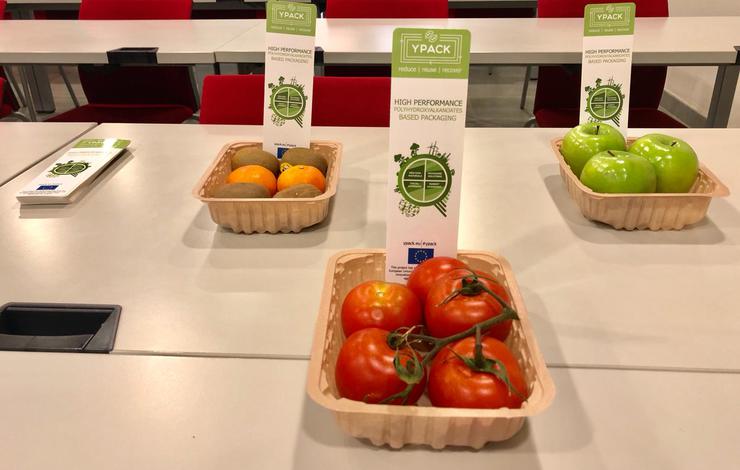06-05-2019

The Biochemical Engineering Lab at UCIBIO in the Chmistry Department - FCT NOVA, led by Maria Reis, is one of the partners of the European Project YPACK that aims to scale up and validate two innovative food packaging solutions based on polyhydroxyalkanoates (PHA) with active properties and passive barrier to reduce food waste by prolonging food shelf life. The consortium of the 3-year EU-funded project consists of a multidisciplinary team of 21 partners from 10 European Union member countries or associated, including UCIBIO at NOVA University, University of Minho and Continente Hipermercados S.A.
The ideal packaging involves lower carbon and water footprints, is biodegradable and/or compostable, makes use of wastes or by-products, is properly eco-designed, safe and has the right preservation properties to minimize food waste.
Maria Reis, full professor at the Chemistry Department of FCT NOVA, explained to the national newspaper Expresso “we needed a raw material with little value and, therefore, with a very low cost. We choose whey, because it exists in large amounts and the production of cheese is common to almost all European countries”. In small industries, the whey, a by-product of cheese industry, is often discharged into the environment, with a negative impact due to carbon and lactose. In the Biochemical Engineering Lab, researchers use whey to feed bacteria that produce biopolymers, known as polihidoxialcanoatos (PHA). It has been a few years since Maria Reis’s research team uses food waste to feed bacteria to produce polymers, “but a major step was crucial at this stage”, she says. “We developed the full process of transformation of whey into this polymer in a pilot scale, and now we transfer our technology to a Belgium partner to produce in a semi-industrial scale”, adds Maria Reis.
In the news:
"Este plástico é de soro de leite e cascas de amêndoas" (Expresso)
"Embalagens que se degradam em três meses devem chegar ao Continente ainda em 2019" (Público)